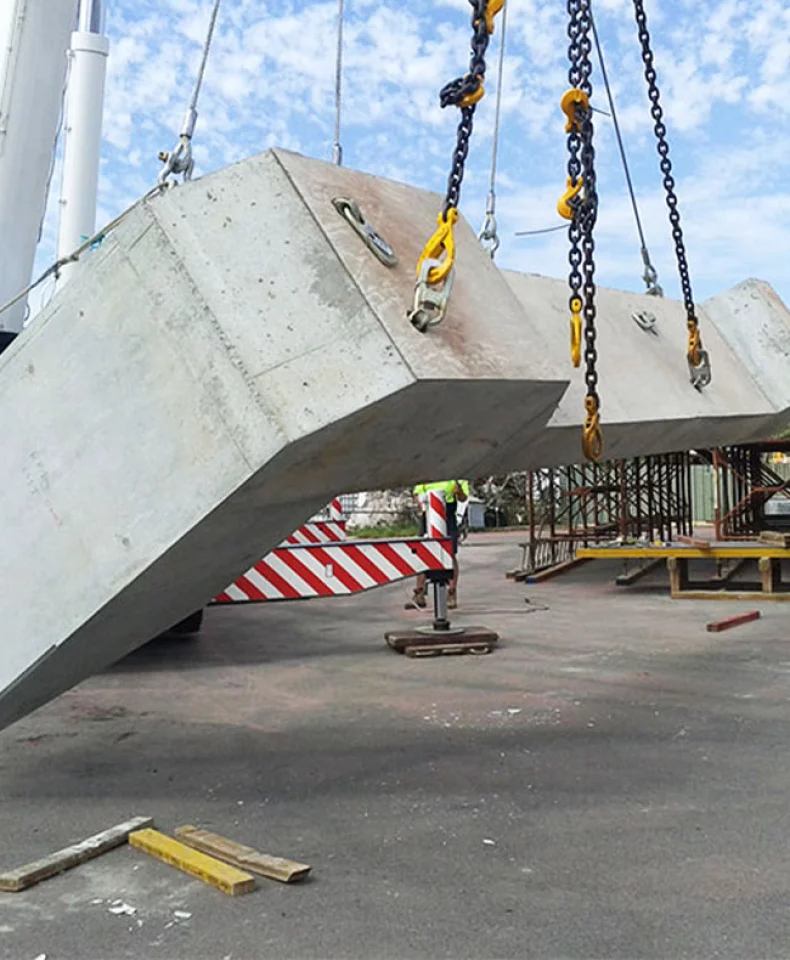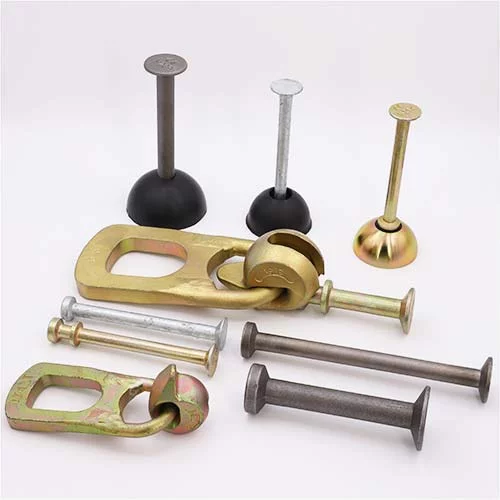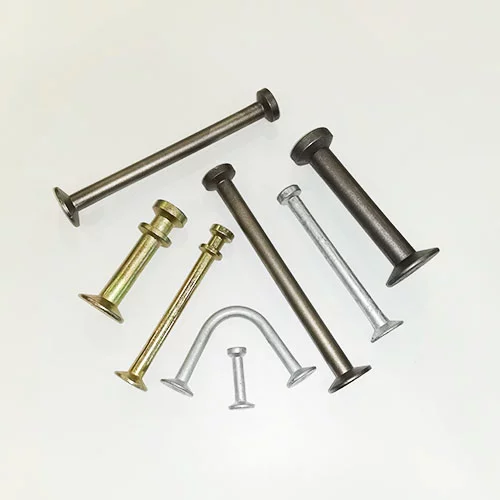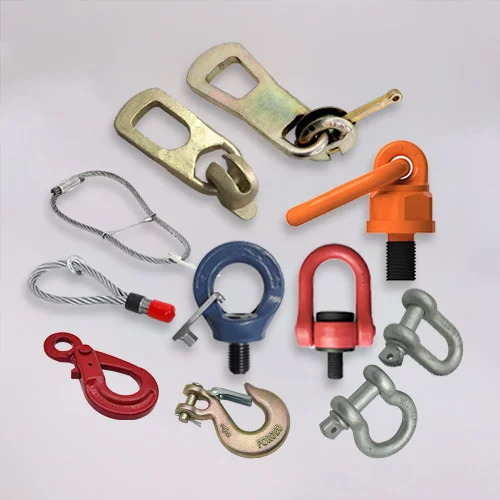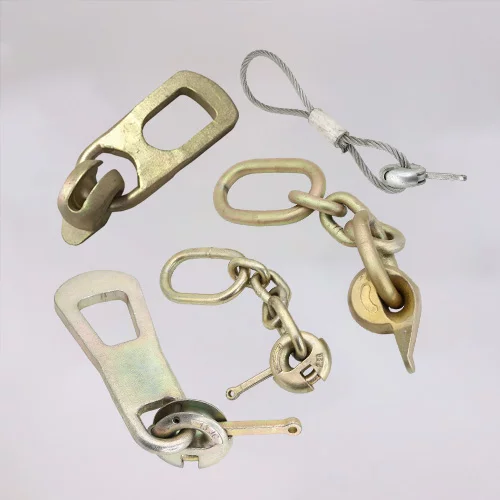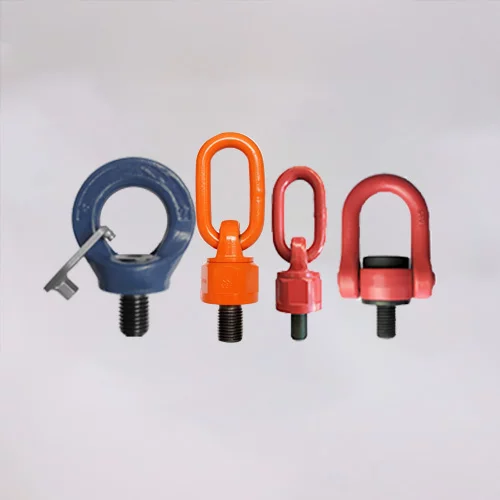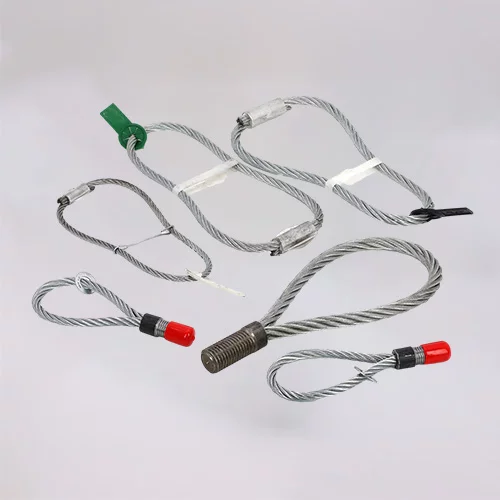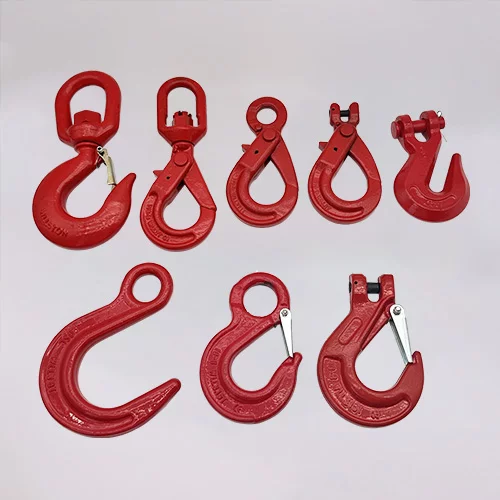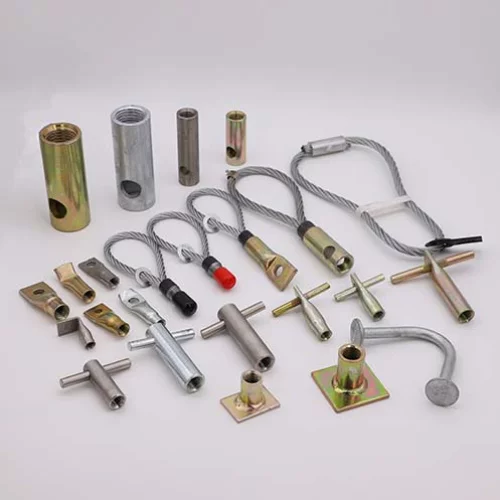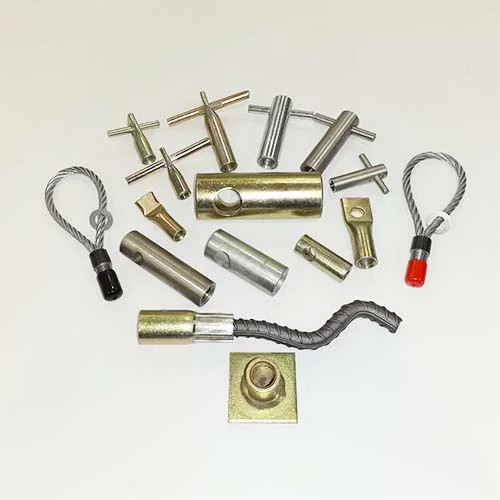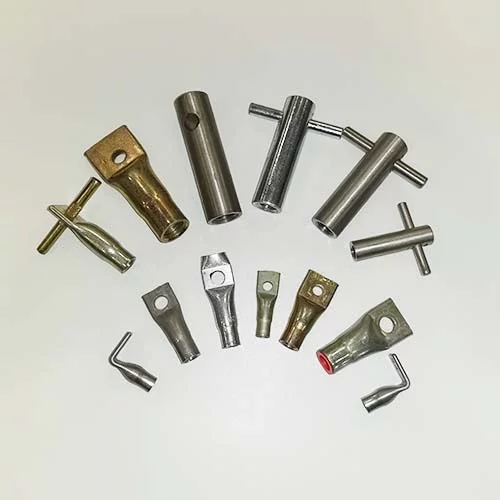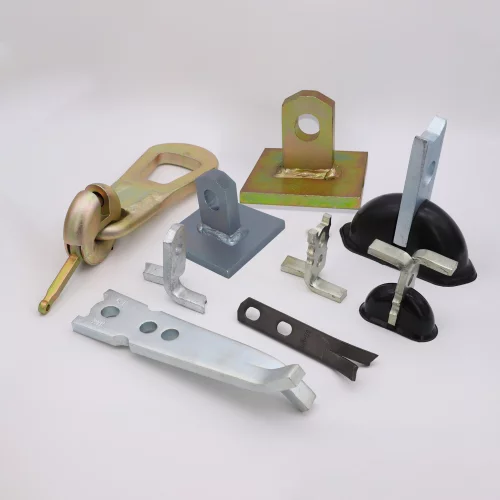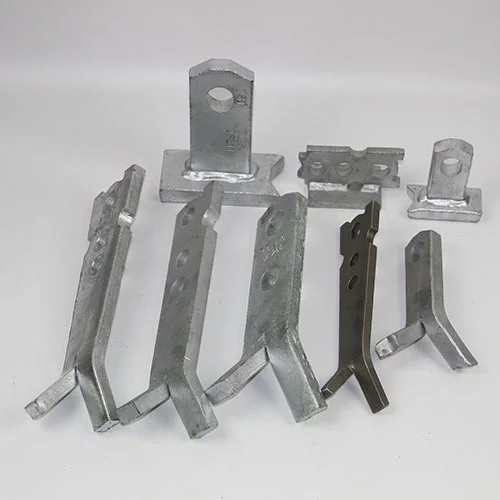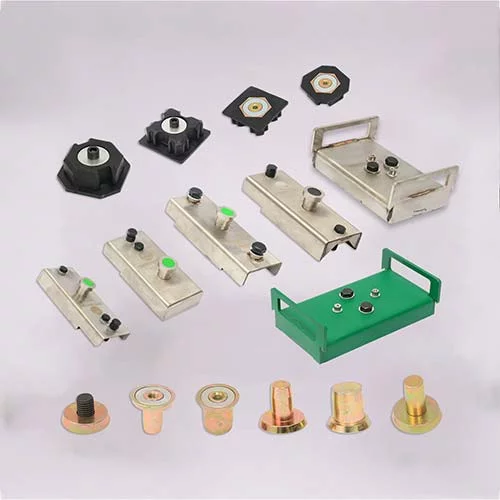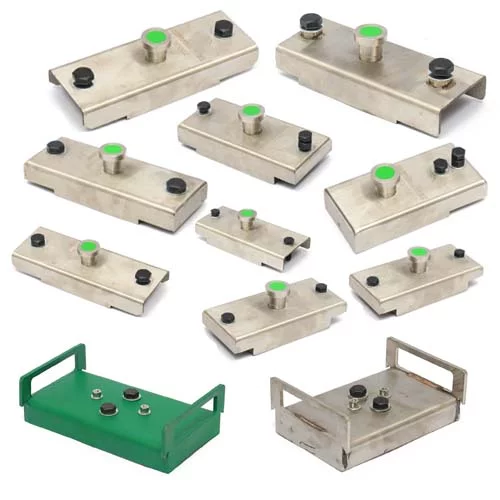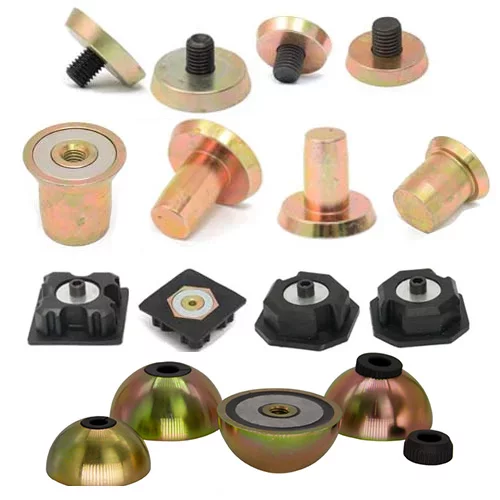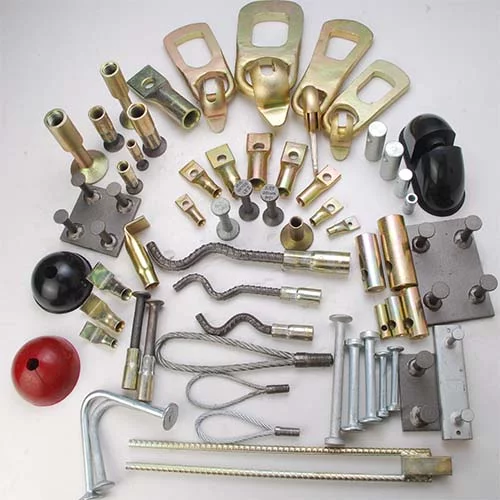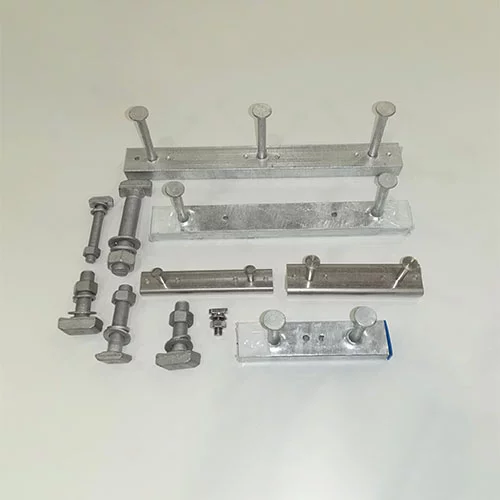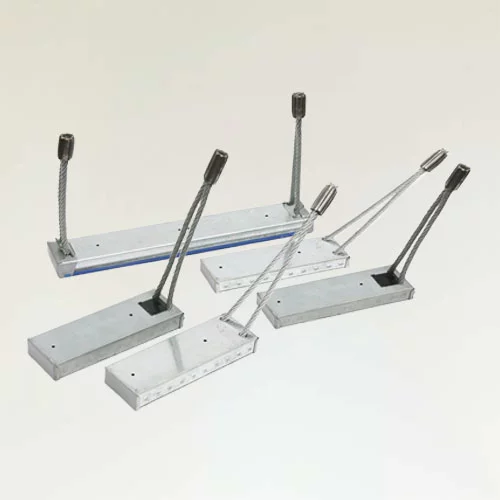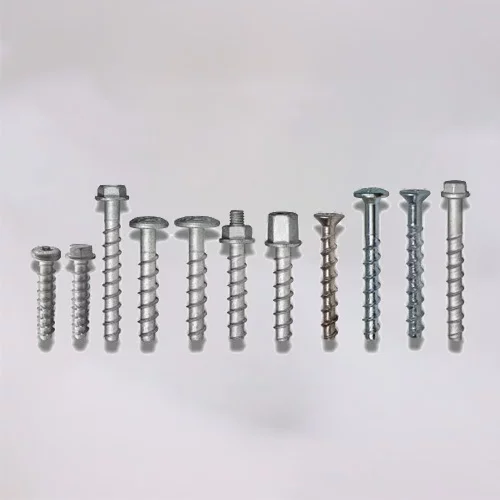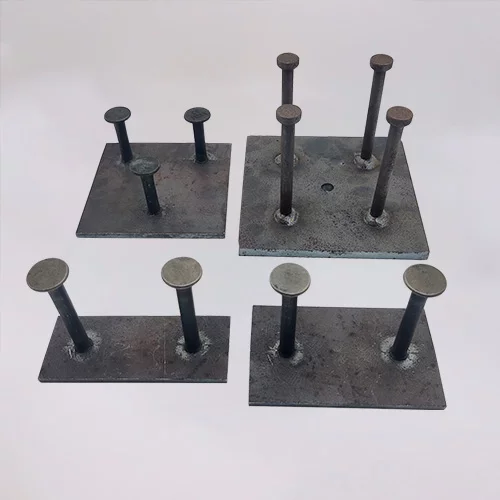The Production and Quality Assurance of Spread Anchors

Spread anchors are essential lifting components in the precast concrete industry, designed to ensure safe and efficient handling of concrete elements. These anchors provide a secure and balanced load transfer during lifting operations, playing a crucial role in structural stability and installation precision. For such critical applications, both the production process and quality assurance protocols must be of the highest standard.
Raw Material Selection and Preparation
High-Strength Carbon Steel
The foundation of any high-performance spread anchor lies in the selection of superior raw materials. At HULK Metal, we prioritize high-strength carbon steel due to its outstanding mechanical properties—namely, its high tensile strength, excellent toughness, superior wear resistance, and reliable ductility. These attributes ensure the spread anchor can endure intense operational stresses without deformation or failure.
We carefully source carbon steel that meets or exceeds rigorous international standards such as ASTM (American Society for Testing and Materials), DIN (Deutsches Institut für Normung), or EN (European Norms). These global certifications guarantee that the steel used in production maintains consistent quality, uniform chemical composition, and predictable mechanical behavior, which are all essential for structural applications like lifting and anchoring.
Material Inspection Procedures
Before any steel enters the production floor, it undergoes a comprehensive inspection process. The goal is to detect any imperfections that may affect the anchor’s strength, safety, or performance.
Chemical Composition Analysis
Each batch of steel is subjected to spectrometric testing to confirm its chemical makeup. Elements such as carbon, manganese, silicon, and chromium must fall within specific ranges to ensure optimal performance in tensile and fatigue environments.
Mechanical Property Testing
In addition to chemical analysis, mechanical tests like tensile strength, hardness, and elongation are conducted. These tests help verify that the raw steel meets load-bearing and deformation resistance requirements. Only steel with the desired mechanical profile is cleared for use.
Surface Quality Inspection
Finally, the material is visually and manually inspected to ensure it is free from surface defects such as rust, scale, burrs, or cracks. These imperfections can interfere with downstream processes like cutting or welding and may compromise the final product's integrity.
Precision Manufacturing Process
CNC Laser Cutting
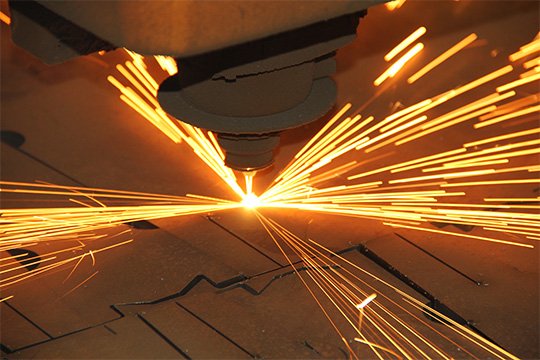
Once the raw materials have passed inspection, they move into the first phase of the production cycle: CNC laser cutting. This technology enables highly precise and clean cuts, allowing the spread anchor’s components to conform exactly to the required geometry. Unlike plasma or flame cutting, CNC laser cutting minimizes thermal distortion and leaves smooth, burr-free edges. This precision reduces the need for secondary finishing operations and improves overall production efficiency.
CNC laser cutting also enhances repeatability. This means every unit produced matches design tolerances with high consistency, an important factor for projects involving multiple identical precast components.
Bending and Forming
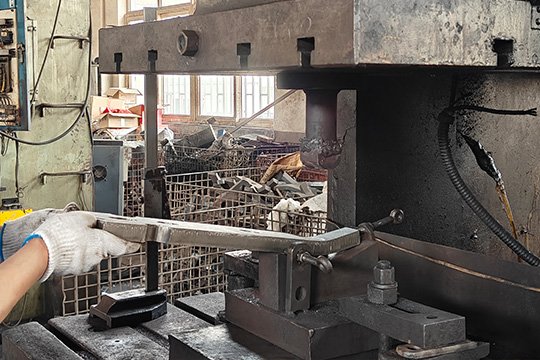
After cutting, the steel blanks are shaped into their final forms through controlled bending processes. CNC press brake machines are used for this task, applying uniform pressure across the entire workpiece to produce accurate, angle-specific bends. This stage is critical in forming the geometry that determines how the anchor distributes loads during lifting operations.
During the bending process, each spread anchor undergoes precise measurement and calibration to ensure it meets exact angle and dimensional specifications. This step is essential to maintain uniformity, guarantee proper fit in precast concrete applications, and uphold the anchor’s structural integrity and performance.
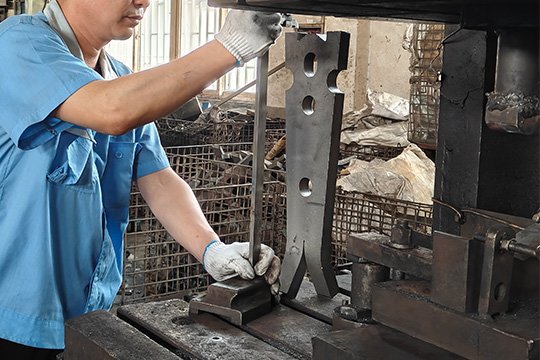
By using programmable equipment, variations are minimized, which ensures every spread anchor performs uniformly under load, contributing to consistent safety and reliability on the construction site.
Advanced Welding Techniques
In assemblies where additional reinforcement is required, welding becomes the next step. HULK Metal uses MIG (Metal Inert Gas) or TIG (Tungsten Inert Gas) welding, depending on the application and material thickness. These techniques ensure deep penetration and solid joints with minimal spatter.
All welds are executed by certified professionals and inspected through both visual checks and non-destructive testing methods such as ultrasonic or magnetic particle testing. These inspections are critical to ensure the welds meet structural strength requirements and do not contain internal defects that could compromise anchor performance.
Surface Treatment
The final step in the manufacturing process is surface treatment, which provides corrosion resistance and improves the durability of spread anchors in various environmental conditions.
Hot-Dip Galvanizing
For anchors intended for outdoor or aggressive environments, hot-dip galvanizing is used. This involves immersing the anchors in molten zinc, creating a thick, durable coating that offers superior protection against rust and mechanical wear.
Electro-Galvanizing
For applications with aesthetic or dimensional requirements, electro-galvanizing provides a thinner, smoother coating with a consistent appearance. Though not as thick as hot-dip coatings, it is sufficient for indoor or protected environments where corrosion risk is lower.
These treatments not only extend the product’s lifespan but also enhance its appearance, making them suitable for architectural as well as structural applications.
By combining material science, advanced machinery, and rigorous quality controls, HULK Metal ensures that every spread anchor meets the highest industry standards from the ground up.
Rigorous Quality Control Measures
In-Process Inspections
Quality checks are conducted at every stage of production. Dimensional inspections ensure adherence to design tolerances, while surface and weld inspections verify the absence of defects. These in-process controls help to prevent errors from propagating down the production line.
Tensile Load Testing
One of the most critical tests for spread anchors is tensile testing. Each batch of anchors is tested to at least three times the rated load capacity to ensure they can withstand extreme conditions. State-of-the-art computerized tensile testing machines are used to produce accurate, reproducible results, helping to verify the mechanical integrity of the final product.
Final Inspection and Documentation
Before shipping, each spread anchor is subject to a thorough final inspection. This includes visual checks for surface uniformity, measurements for dimensional accuracy, and verification of surface coating thickness. Quality control reports and compliance certificates are generated and provided to clients upon request.
Certification and Compliance
Meeting Global Standards
Reputable manufacturers operate under ISO 9001-certified quality management systems, ensuring traceability and accountability throughout the production cycle. Additionally, spread anchors intended for the European market must meet CE marking requirements under EN 1090 or other relevant standards.
Third-Party Verification
To further build trust and credibility, many manufacturers, including HULK Metal, subject their products to third-party testing by agencies like TUV, SGS, or Bureau Veritas. These independent assessments confirm that products meet or exceed the claimed specifications and performance metrics.
HULK Metal: Your Trusted Partner for Spread Anchors
About HULK Metal
With years of expertise in producing precast concrete accessories, HULK Metal stands out as a leading manufacturer of spread anchors. Our robust supply chain, comprising material sourcing, production, inspection, and logistics, allows us to deliver high-quality products on time and within budget.
Advanced Manufacturing Facilities
Our factory is equipped with the latest CNC cutting machines, press brakes, welding stations, and galvanizing lines. Combined with a highly trained workforce and strict production protocols, we ensure every spread anchor meets exacting standards.
Comprehensive Quality Assurance
HULK Metal implements a multi-stage inspection process, including incoming material tests, in-process inspections, and final product verification. All tests are documented, and clients can request full traceability reports and load test data.
Responsive Customer Service
Beyond production, we offer unmatched customer support. Our technical team assists clients in selecting the right anchor type and ensures compatibility with their precast systems. After-sales services include replacement, returns, and technical troubleshooting.
The production and quality control of spread anchors are complex, high-precision processes that demand meticulous attention at every stage. From material selection and laser cutting to surface treatment and rigorous testing, each step ensures that the final product performs flawlessly in demanding applications.
Choosing a reliable manufacturer like HULK Metal means partnering with a team that prioritizes quality, safety, and service. Explore our range of spread anchors today and experience the HULK Metal commitment to excellence.
Article Navigation
PRECAST CONCRETE ACCESSORIES
Other Precast Concrete Accessories You Might Want to Know
You can click to learn more about HULK Metal precast concrete accessories such as lifting anchors, precast sockets, spread anchors, shuttering magnets, cast-in channels, wire loop boxes, and other precast concrete accessories you might want to know.
